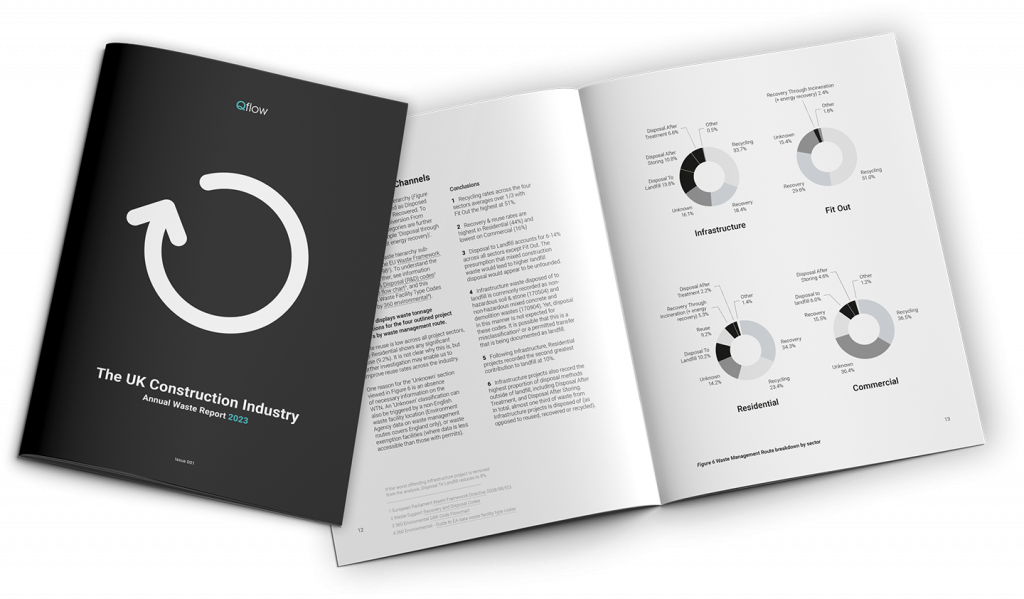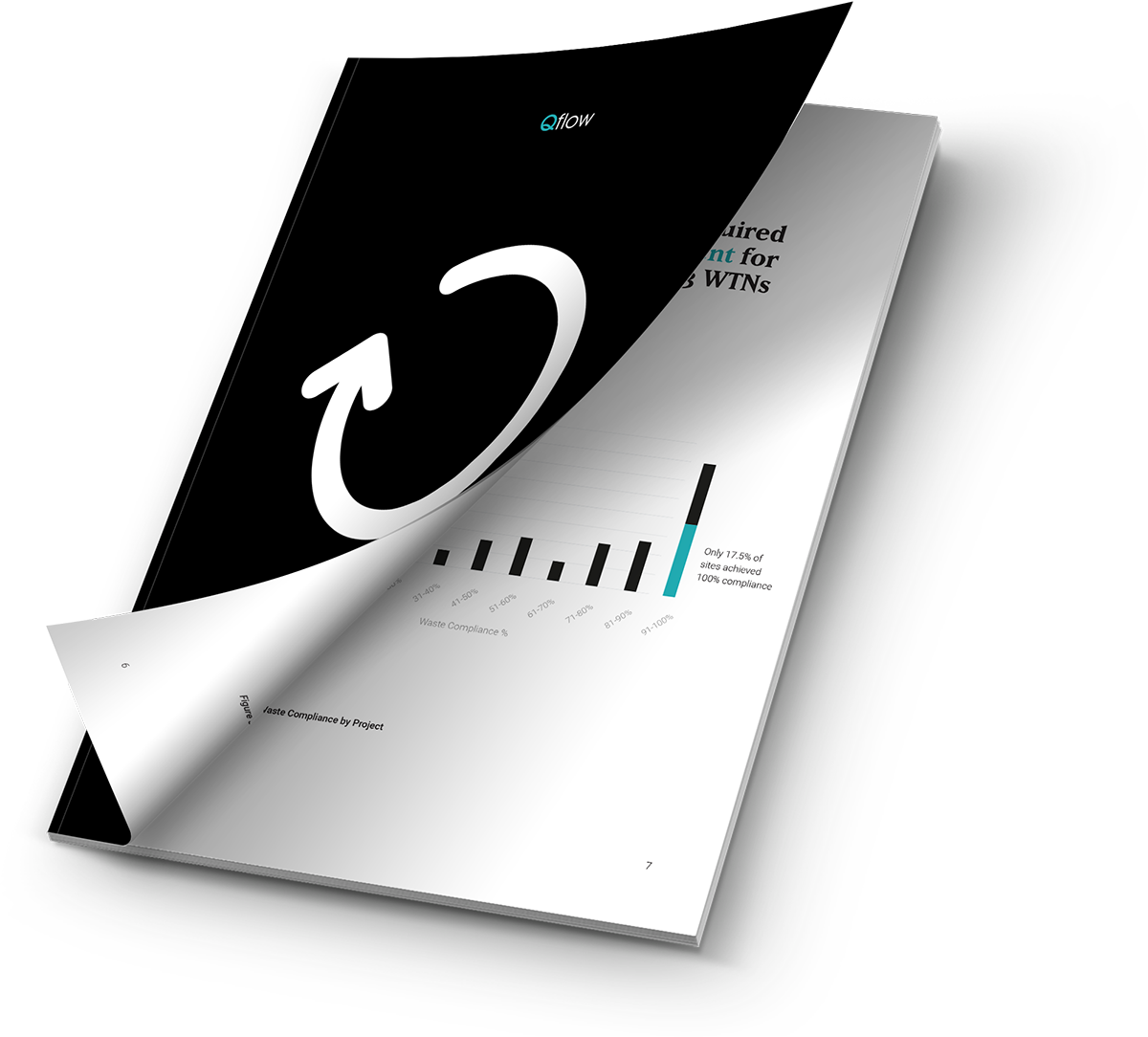The UK Construction Industry Waste Report 2023
The missing 32%
Ineffective waste management puts a pause on sustainability goals.
The construction sector is at a turning point. It is a cornerstone of society and vital for growth and prosperity, without it, humanity stagnates, but currently, our industry needs help.
The construction industry generates 62% of the UK’s waste and 32% of all waste sent to landfill. Diversion from landfill is sitting at 87% – but with 13% of all construction waste going direct to landfill, this is far below the 99% target.
To achieve environmental targets, supporting the circular economy and closely managing how construction waste is disposed of or repurposed will be essential.
Download the UK Construction Industry Annual Waste Report 2023
By submitting this form, you consent to receive marketing updates. You can unsubscribe at any time. Please review our Privacy page for more information
Furthermore, we have looked at how waste facilities are failing to support a circular economy, with only residential construction waste showing any significant reuse of materials (9.2%).

Qflow’s report is the first of its kind, analysing construction waste management over the last five years to support a construction sector that works in synergy with its environment.
Download this report to see the bigger picture, including:
- The current state of construction waste management in the UK
- The flaws in the construction sector that are undermining environmental targets
- How waste is impacting construction carbon emissions
- How construction firms risk up to £1 billion in fines from waste regulators by omitting legally-required information

Without good data on what's happening to all this waste, we don't have a chance of reducing it or improving material reuse and recycling.
We hope that with the insights shared today, and by helping the industry get better data far more easily, we can work together with the regulators, industry bodies, developers and contractors to really transform construction from a linear and wasteful industry to one that is circular and low carbon."
Contributors

Grosvenor is an international organisation spanning urban property, food and agtech, rural estate management, and support for philanthropic initiatives.

IEMA is the worldwide alliance of environment and sustainability professionals, working to increase sustainability and climate awareness.

Morgan Sindall is a group of specialist businesses, delivering construction and regeneration across the UK for the public, commercial and regulated sectors.

SystemIQ: Systemiq was founded as the system change company, to help design and build that better economy. Systemiq seeks to bring speed and scale to transforming five systems that shape how we live and work: energy, nature and food, materials, urban areas, and finance.

Qflow is a digital platform enabling construction teams to collect real-time materials and waste data during construction, enabling project teams to make informed decisions on cost, carbon, and quality.

Register below to download the UK Construction Industry Annual Waste Report 2023
By submitting this form, you consent to receive marketing updates. You can unsubscribe at any time. Please review our Privacy page for more information
Speak with our expert sales team to book a demo
Enabling responsible, resource efficient construction; cutting waste and carbon. Qflow automates on site data capture and auditing, feeding it into your existing tools
